
This Page from Bio Summit 4.0 Has Been Archived
Talks, Panels & Breakout Sessions
Throughout the weekend, Bio Summit will be live on Zoom!
Find a full list of events, organized by date. Or, sort by subject or type by clicking the links below.
To find each events’ Zoom links, please click on the event you’d like to attend.
Events are being added every day, and the full schedule will be coming soon!
Click below to see each day’s events in a Google Doc
Friday, Oct. 9 | Saturday, Oct. 10 | Sunday, Oct. 11
Click below to sort events by subject track
- Bio Ethics Safety & Security 9
- BioArt & Design 10
- Communicating Science 6
- Diversity & Inclusion 8
- Fellows 1
- Fun Stuff 2
- Global Collaborations 8
- Governance & Leadership 11
- Guardianship of Ecosystems 6
- Learning & Education 10
- Open Innovation 7
- Power of Community 6
- Regional Meetings 2
- Responding to Covid-19 5
- Workshop 20
Click below to sort events by type
Click below to enter Zoom Rooms
Throughout the weekend, all events will be held in parallel zoom rooms. We refer to these rooms by the names of organelles in a cell! You can click on the organelles below to enter their corresponding Zoom room, or copy the link into your browser.
NOTE: ALL TIMES SHOWN ARE EASTERN TIME.
To find your time zone, use this handy time zone converter!
Wine and Witches
Post-conference BYOB with Bio Summit co-organizers Alex Pearlman (MIT), Amanda Strawhacker (Tufts), and all other witchy biohackers who want to join us! This informal "Wine Chat" will center on historical representations of female bio practitioners, including artists, midwives, witches, herbalists, etc., and how these stereotyped images have impacted female involvement in the modern and future community bio movement. BYOBroom and your favorite tasty beverage!
ZOOM ROOM - LYSOSOME
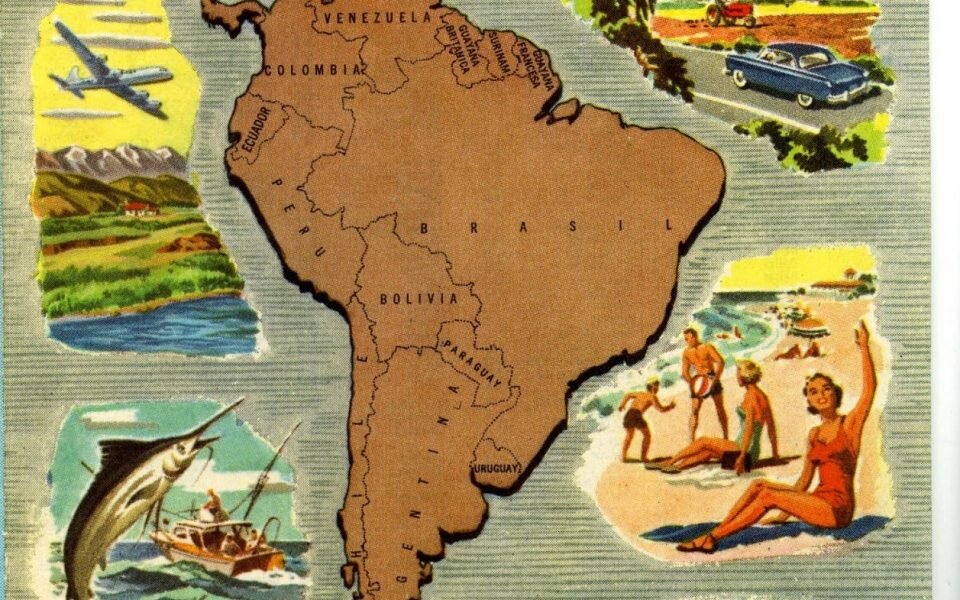
Latin American Bio Summit
Breakout session with Isis Eich.
ZOOM ROOM: GOLGI COMPLEX
https://mit.zoom.us/j/97630135101
ALL TIMES ARE SHOWN AS EASTERN TIME BY DEFAULT

Responding to Covid-19: Breakout Sessions
Virtual Covid-19 diagnostic lab tour by Marc Juul (Biohacker)
Opentrons & Open Cell: Mobile Infrastructure for COVID-19 Rapid Testing by Chaz Childers (Opentrons) and Thomas Meany (Open Cell)
ZOOM ROOM: RIBOSOME
https://mit.zoom.us/j/99515146425
ALL TIMES ARE SHOWN AS EASTERN TIME BY DEFAULT

DNA Day: A Global Movement
Breakout session with David Kong, Rosann Wise and Kimberly Jacoby Morris.
ZOOM ROOM: GOLGI COMPLEX
https://mit.zoom.us/j/97630135101
ALL TIMES ARE SHOWN AS EASTERN TIME BY DEFAULT

The Ethics Behind Using Gene Editing/Drive on Parasites, Vectors, or Invasive Species
Nature is known for its ability to make certain species prosper over others through natural selection but over the last few centuries, we have seen drastic changes in certain populations in direct relation to human behavior, such as climate change and urbanization. Due to these exterior forces, new species or an increased population is being introduced in areas not seen prior. Traditionally ecosystems are designed to be self-sustaining and most species have a vital role, and in the case of smaller species, they often serve as pollinators and essential prey options for certain diets. While necessary in some aspects, these are also the same organisms that cause colossal damage to humans. In some cases, such as invasive species, they serve no productive role in that specific ecological environment. New gene drive technology allows us to eliminate these species from certain countries, continents, or even the entire planet. This presents an opportunity to partially reverse the damage humans caused while addressing issues we could never tackle in the past. The humanitarian impact of this decision could be saving millions of individuals annually, usually from impoverished areas, from suffering or death. This speed talk will cover the fate of three different species (mosquitos, ticks, and rodents) that can be eradicated completely- or primarily in certain high impact areas- through gene drive, discuss methods of operations and containing effects, and delve into the consequential morality of this decision on the ecosystem and humanity.
By Tayyaba Ali (Mission Invicta)
ZOOM ROOM: LYSOSOME
https://mit.zoom.us/j/92230200589
ALL TIMES ARE SHOWN AS EASTERN TIME BY DEFAULT

Guardianship of Ecosystems: Breakout Sessions
Moderated by Sebastian Kamau (MIT Media Lab)
Eco-friendly materials for building self-sufficiency, Frazier Farrell, Augmentation Limitless, USA
Decolonizing the Atmosphere: How Can We Build Equitable Climate Solutions?, Kristin Ellis, Carbon180, USA
ZOOM ROOM: CHLOROPLAST
https://mit.zoom.us/j/99871630836
ALL TIMES ARE SHOWN AS EASTERN TIME BY DEFAULT

BioCyberSecurity and Community Bio Research
Biocybersecurity (BCS) is a growing concern for security professionals, research labs, and medical facilities. In this talk, the presenters will elaborate on the importance of BCS, its pertinence to daily life, and its present and possible future threats. The goal is for attendees to be leave this presentation knowledgeable of the potential hazards of BCS, and ready to mitigate future insecurities.
This presentation is by Xavier Palmer and Lucas Potter (Old Dominion University and BioSView Lab), and will be followed by a short Q&A session.
ZOOM ROOM: LYSOSOME
https://mit.zoom.us/j/92230200589
ALL TIMES ARE SHOWN AS EASTERN TIME BY DEFAULT
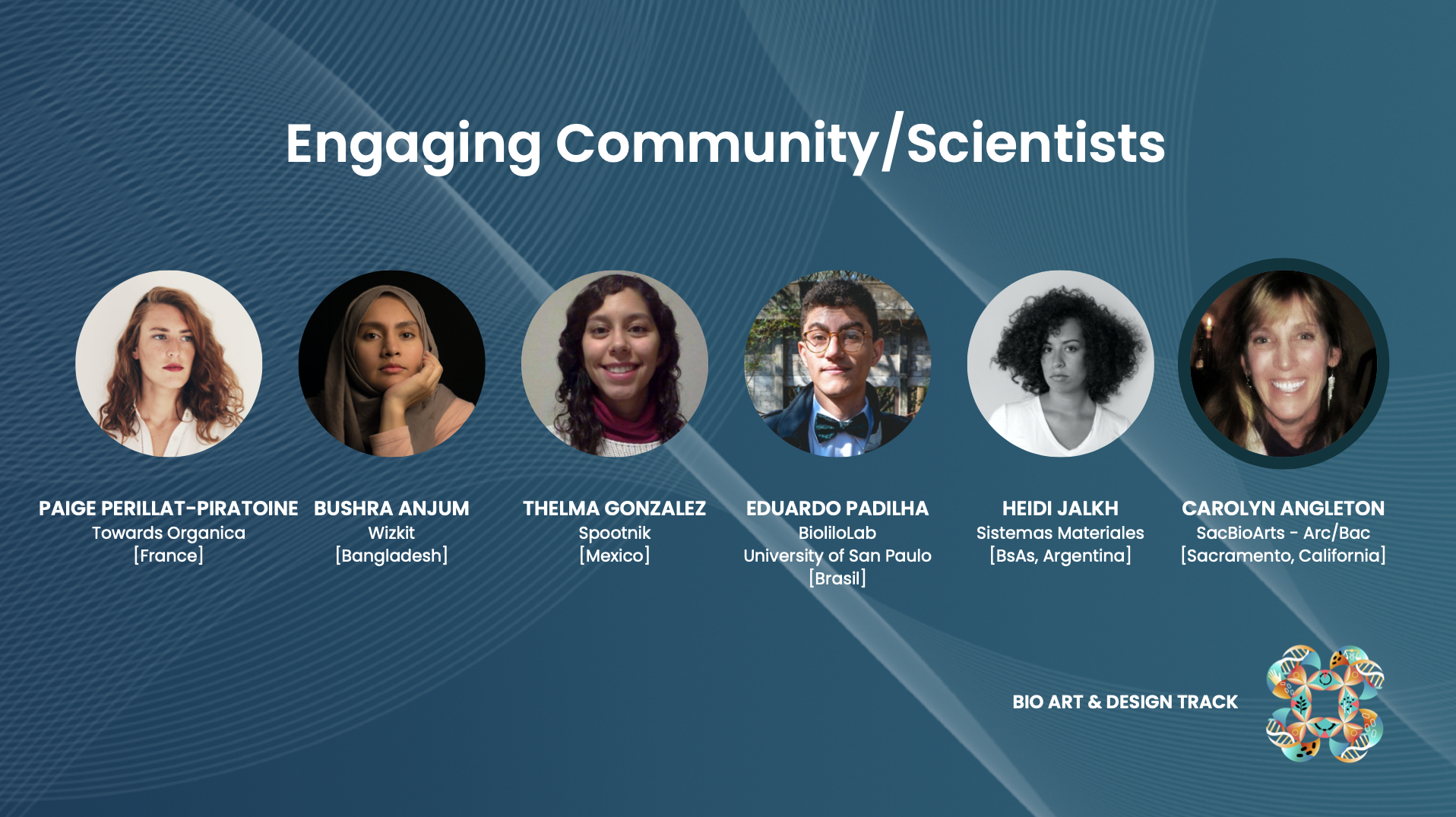
Launching a Creative BioCulture Network
Breakout session and group conversation led by the BioArt and Design track.
Co-creating the Field of Bio Art 3-tiered session: 1) Setting up a residency program, 2) Connecting Locally w Scientists, 3) Bioarts Community Roundtable and Breakouts on “How to Launch the Creative BioCulture Network” ✓ “Art and Science Residencies”
@Danielle Siembieda , Leonardo/ISAST , San Francisco_
✓How to Connect Locally w Scientists, Building GCBS shared templates
Introduction of “Creative BioCulture” Initiative (Carolyn & Roland) @Carolyn & @Roland van Dierendonck (he/him) - Oslo
✓ Engaging Community/Scientists: Template sharing: (4 min each)
@Paige Perillat Piratoine, Towards Organica, France
“Mapping the process/generating the idea”
@bushra Anjum, Wizkit, Bangladesh
“Biomaking within a community context”
@Thelma Gonzalez, Allbiotech/UNAMI/Spootnik, Mexico
“Failure” & how to research a contact that may help you”
@Eduardo Padilha Antonio, BioliloLab, University of San Paulo, Brazil
“Connecting scientists to artists: Global->Local”
@Heidi Jalkh [she/her] Buenos Aires, Argentina, Sistemas Materiales Groups, Argentina
“Template letter, communicating w scientist about a project proposal”
ZOOM ROOM: GOLGI COMPLEX
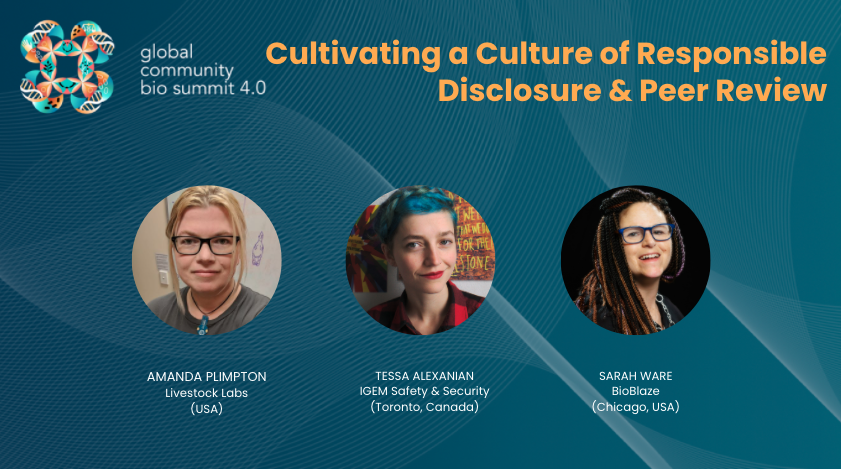
Cultivating a Culture of Responsible Disclosure & Peer Review
Sarah Ware (BioBlaze), Amanda Plimton (Livestock Labs), and Tessa Alexanian (Safety & Security, iGEM) will lead a Breakout Session to discuss cultivating a culture of responsible disclosure, and breakout groups will brainstorm topics around reimagining what an IRB might looks like for Community Bio.
ZOOM ROOM: LYSOSOME
https://mit.zoom.us/j/92230200589
ALL TIMES ARE SHOWN AS EASTERN TIME BY DEFAULT

Open Innovation: Breakout Sessions
Why on Earth go to Space? And how by Nicolas Fuentes Musitu (ICE Cubes), Karen Hogan (Biorealize), Molly Mulligan (SpaceCom Matters), and Hilde Stenuit (ICE Cubes)
qPCR open hardware hacking sync session by Marc Juul (Biohacker)
Wearable Biotech by Pat Patanutaporn (MIT Media Lab)
ZOOM ROOM: RIBOSOME
https://mit.zoom.us/j/99515146425
ALL TIMES ARE SHOWN AS EASTERN TIME BY DEFAULT

DIY Community Biosafety Handbook: It’s here, it’s yours, but it needs your help to survive
It's finally here! The biosafety handbook was written by and for the DIYbio community after a multi-year tour of community laboratories and interviews. Thanks to the hard work of many in the community, it is ready to launch. This "living" 18 chapter handbook is intended to grow alongside the community and will need the community's help to survive. This active participation workshop will discuss the contents of the biosafety handbook, form a biosafety handbook committee which will take ownership of the handbook, help decide where it "lives", and manage future updates. As well as begin to make valuable changes and additions to the handbook based on regional differences in laws/regulations. Please join the authors to discuss the contents and how you can help make sure this valuable resource is able to live and grow with the community.
Workshop facilitators: Angela Armendariz (Genspace), Jenny Molloy (BiomakeSpace), Eric Harness( Biocurious), Patrik D'haeseleer (Counter Culture Labs), Daniel Grushkin (Biodesign Challenge), Todd Kuiken (NC State University)
ZOOM ROOM: LYSOSOME
https://mit.zoom.us/j/92230200589
ALL TIMES ARE SHOWN AS EASTERN TIME BY DEFAULT

Supermind Design for Community Bio Governance
Led by Tom Malone (MIT Center for Collective Intelligence) and David Sun Kong (MIT Community Bio Initiative)
ZOOM ROOM: CHLOROPLAST
https://mit.zoom.us/j/99871630836
ALL TIMES ARE SHOWN AS EASTERN TIME BY DEFAULT

Platform Design Toolkit
The Platform Design Toolkit is an advanced toolkit to explore new opportunities emerging from the ecosystem through value chain mapping and analysis. How can this could help DIYBIO communities? In Miro.com we will share ideas and presentation about this tool and hope to develop tools to help the DIYBIO community.
Led by Ivan Larrauri De Miguel
ZOOM ROOM: CHLOROPLAST
https://mit.zoom.us/j/99871630836
ALL TIMES ARE SHOWN AS EASTERN TIME BY DEFAULT
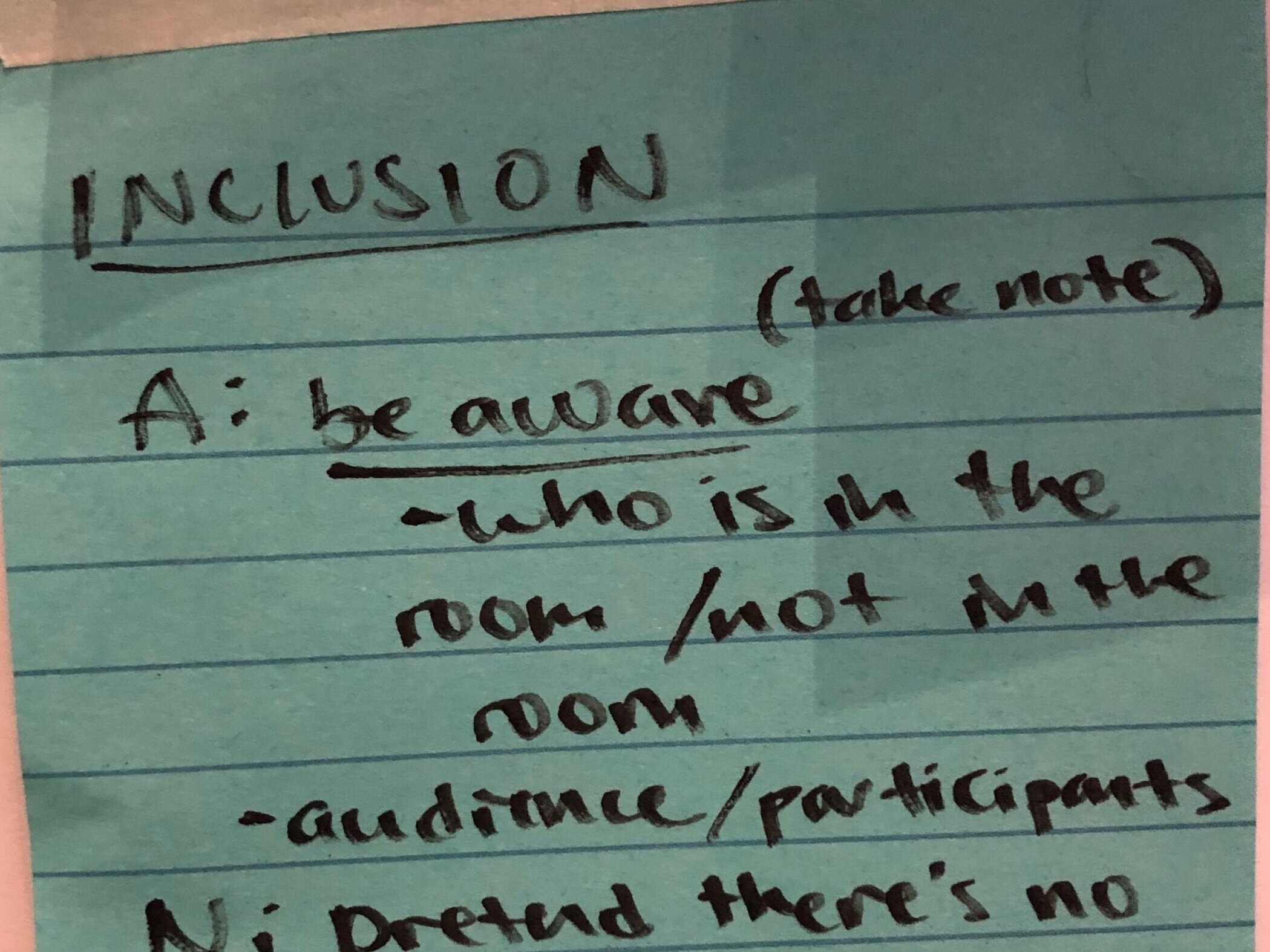
Community Governance: Discussing Inclusion, Participation, and Democracy in Community Bio
Recently, a “DIY” COVID-19 vaccine has attracted national attention. The identification of this effort as “DIY” and “citizen science” once again raises important questions for those involved in community bio.
At past Bio Summits, participants have worked to define “community bio” and to distance themselves from other monikers and their associations with controversial forms of self-experimentation. Even so, significant overlap persists between community bio, biohacking, and DIY-bio (to name a few), and those following this new story have connected the experimental vaccine to much broader practices, implicating community bio in the process. As community bio takes up questions of governance at GCBS 4.0, this breakout session seeks to generate a discussion about persistent fundamental questions within community bio, including the central question: “Who is the community?”
The organizers, members of the Open Insulin Project’s “Open Insulin in Society” working group, will discuss their experiences with questions of democratic participation and inclusion. They invite others who identify with community bio to share the ways they have encountered these questions within their projects, efforts, organizations, and laboratories. Topics for the discussion may include: who is invited to participate in community bio and the forms this participation takes; how to address power and resource disparities within community bio; and the relationships between openness, inclusion, and ownership.
Led by Andy Murray
ZOOM ROOM: CHLOROPLAST
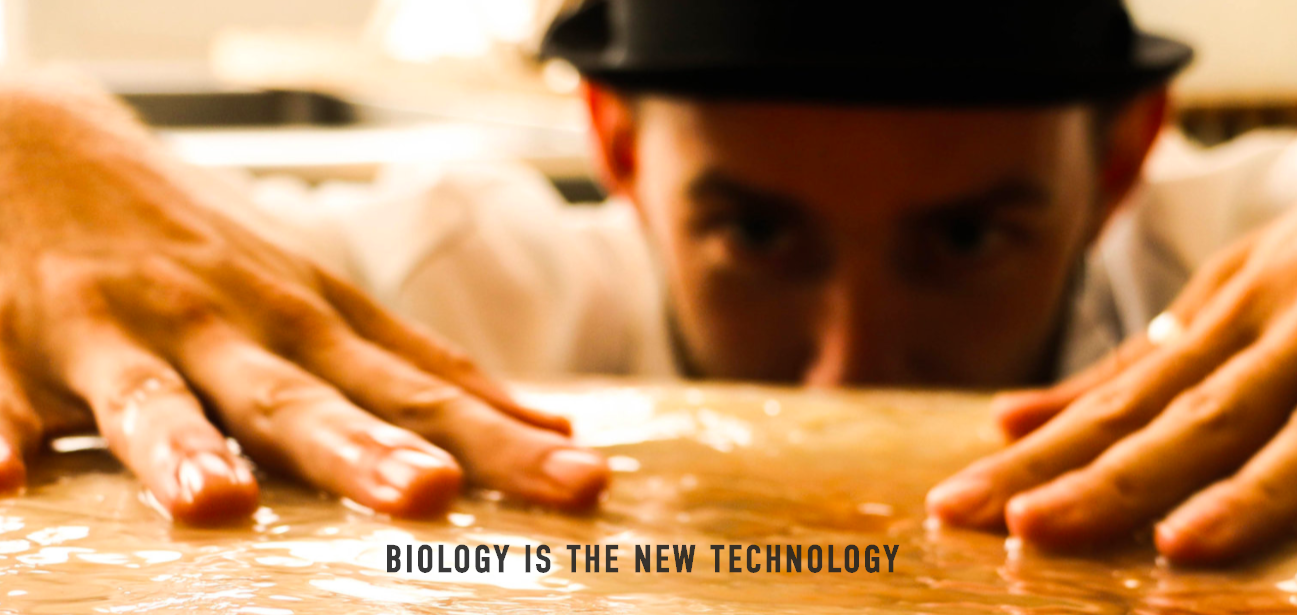
Democratization of Biofabrication
An open discussion about a recent biofabrication project that focused on bringing new ideas to the most vulnerable and least privileged sectors of our community.
Led by Silvio Tinello, Professor and researcher at Universidad de San Andres, Buenos Aires, Argentina.
ZOOM ROOM: LYSOSOME
https://mit.zoom.us/j/92230200589
ALL TIMES ARE SHOWN AS EASTERN TIME BY DEFAULT
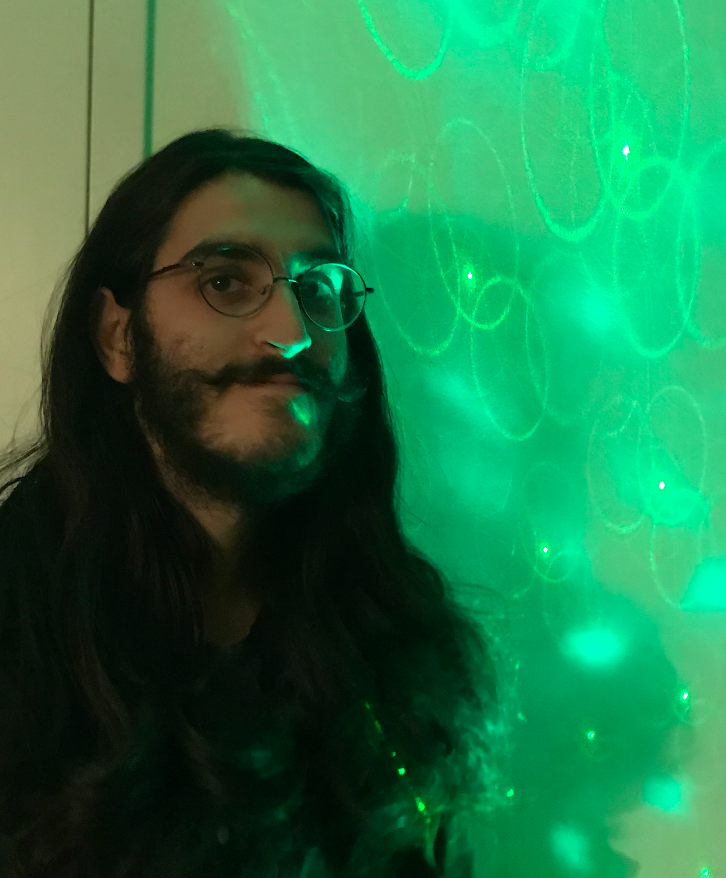
Bioengineering for insect disease and pest management: the need for participatory governance
Technologies intended to curb populations of disease-causing or crop-destroying insects are rapidly becoming more and more powerful. In particular, with the advent of CRISPR/Cas9 gene drives, the possible risks to ecological balances and the threat of corporate monopolies are becoming very real. Citizens across the world, especially those in marginalized positions, may be affected in unpredictable ways. What is being done currently and how can we go further when it comes to responsible governance of these insect control biotechnologies? A presentation will be given about the current industry of bioengineered insect control and the latest initiatives (or lack thereof) to keep public engagement strong in the usage of bioengineered insects. Participants will have the opportunity to have a discussion about the topic and collaboratively draft a set of guidelines for this technology as an exercise for citizen involvement in science governance.
Led by Benjamin Rubin
ZOOM ROOM: CHLOROPLAST

Equity at Community Labs
An open forum for those who are currently or would like to be involved with community labs to share ideas on how our organizations can contribute to addressing structural inequities both in STEM and in broader society. Led by Orlando de Lange (SoundBio)
ZOOM ROOM: LYSOSOME
https://mit.zoom.us/j/92230200589
ALL TIMES ARE SHOWN AS EASTERN TIME BY DEFAULT







